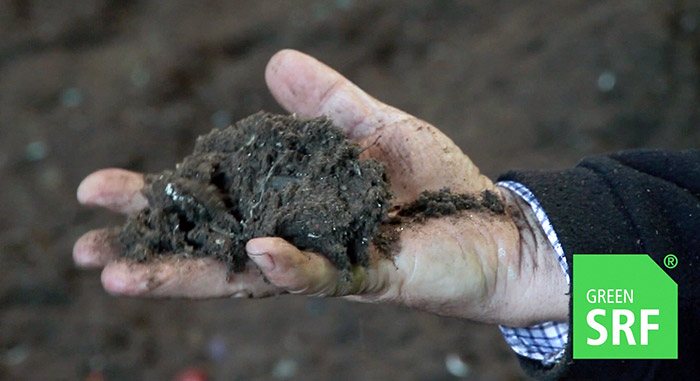Innovate: To recovery the organic fraction
Every little effort to innovate encloses a small revolution: the desire to find a different solution for contradictions and previously unsolved problems solving. Finally the desire to improve.
Breaking with previously established patterns, as hard as necessary, is for some, among in which we are included, an obligation and the sense of our work: in our case, to extend the attributes of products and services to satisfy new and complementary requirements.
Recently, a teacher in a prestigious business school, as part of a strategy conference, reflected the high number of books that deal with the meaning of strategy applied to very different fields: from ‘The Prince’ by Niccolo Machiavelli or ‘The art of War’, written by Sun Tzu, through Porter and Kaplan.
From Waste to Cash, we would like now to put the spotlight on ‘The blue ocean strategy’, a book on business strategy published in 2005, that explores the ability of industries to improve, complete or create values to differentiate their products, attract new demand and achieve what is called ‘Blue Oceans’ in the book.
From Waste to Cash, as active agents in the environmental industry, we have reflect on the requirements to be covered by the sector to fulfill its role of awareness and environmental management.
Each moment in history is but an inflexion point in which will be supported new ways of doing and work and it will generate new concerns and horizons. Recently, Josep Maria Tost, Director General of the Catalan Waste Agency (ACR), recalled in an interview for “El Periódico” it was in the 90s when it launched the first recycling policies. Only in Catalunya there were over 2.000 uncontrolled landfills: the problem of waste was then only a public health problem. Today is not just a problem. It is, perhaps, the origin of new solutions in which the binomial residue-resource is one of the pillars for sustainable development of our planet and its cities.
However, each country is at a different environmental development point: in a different state. In this race: there are more advantaged countries, societies with a higher sensitive towards the care and respect for the environment culture and tradition, just as there are countries and communities, by their level of development and precisely underdevelopment problems associated, as rational, they are still far away to think about any kind of improvement in waste management.
Wet waste treatment: the great revolution
As we have been highlighting in previous posts, the large field in which is technologically necessary to act is the wet fraction, organic fraction, which remain, nevertheless, more than 50% of all urban solid waste generated.
If we take a look at the Eco parks objectives, from various different European countries, provided in their websites, most of them have as objective to minimize the rejection fraction that finally is going to landfill.
It is being done a great job to raise public awareness about recycling, on the separation of waste generated to improve the ability to reuse materials and brought back into the economic cycle as raw materials for new products. That’s right.
But what is not being openly explained to the public is that after the effort (and investment) in clean cities, picking up waste, take it to the treatment centers and treat it, eventually over 50% already ends up in landfill.
It is bio-stabilized to reduce his pollution, but finally, it is buried without giving it any alternative use, without re-introduced it into the economic cycle.
From Waste to Cash we bet to technically work to find solutions to the real problem which it continuous, and never better said, burying into landfills. A lot of valuable resources that are hidden. Remember what was said in our first post about what is waste. It is the owner who considers that has non residual value and is classified as waste.
As owners, we can change that, because it is a fact that we can give the wet fraction a better use. Is it truth that all material is buried in landfills has no value? We are sure it has and we bet for that.
We are able to transform MSW…
Into a Material…
With between others this characteristics…





Comments are closed.